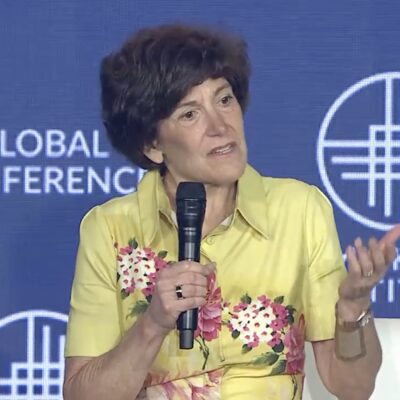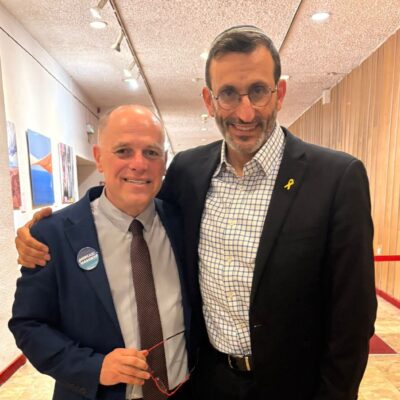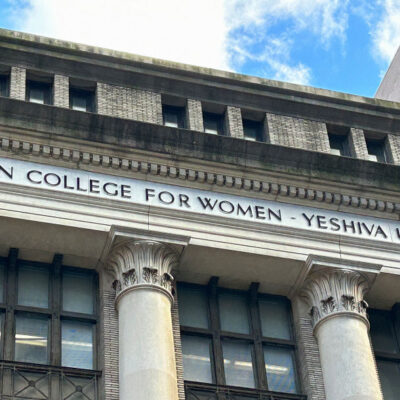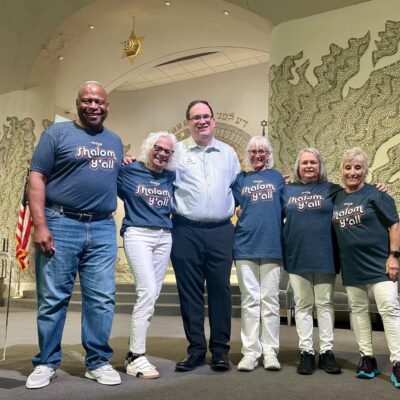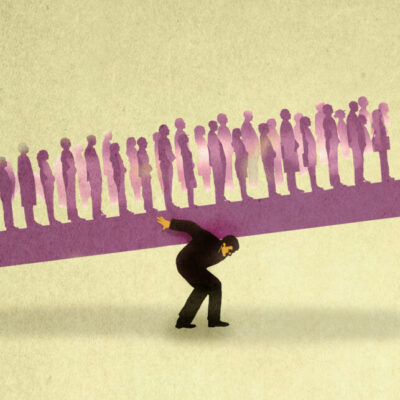Opinion
Community Jewish Education and Engagement Beyond the COVID-19 World

By ADCA (The Association of Directors of Communal Agencies for Jewish Education)
Rabbi Benay Lappe, in an article that appeared in eJewish Philanthropy on April 5, noted that the Talmudic and Rabbinic Era of Judaism grew out of the uncertainty of 1st century upheavals in the Jewish world of that time. In writing about it, Rabbi Lappe speaks of the “journey of uncertainty” that existed then and that, to greater or lesser degrees, continues to be embedded in Jewish life.
Our Jewish communities and our world overall is in a profound state of uncertainty. If we struggle only to return to a former status quo, we fail our communities and miss an opportunity for change that has been foisted upon us. Jewish education must be both an arena in which change takes place as well as a vehicle for building communities that reflect a dramatically changed set of realities.
We view these as the opportunities that Jewish education and engagement, on the community-wide levels, will address in planning for the future:
- Jewish community is evolving and Jewish education is a key to that evolution. Organizations and initiatives that are strengthening their constituents and their interconnectedness during this challenging time will come out stronger on the other side. This is not accomplished by just doing the “same old, same old” via Zoom. Instead, they are learning to encourage professionals and leadership to reach out one-to-one to members, inspiring people to engage in volunteer service in different ways, and looking out for their most vulnerable members. As communities change, Jewish education has to prepare learners to both reinvent and participate in synagogue and organizational life.
- Relationships and connections – between individuals, with community, with the sacred, and with Jewish wisdom – are primary goals and significant elements in successfully providing Jewish education. As the intensity of Jewish community has dissipated in the post-modern era, Jewish education seeks relationships as a goal, the building of Jewish community critical to Jewish living (Jewish education can only be practiced with relationships). Relationships are a methodology, as they allow people to work through the application of their education to their lives.
- Technologies are key to the future of Jewish education and Jewish community. We have seen in recent weeks the extent to which people will show up – across states and the continent, across organizational boundaries – when it’s a little bit easier. We’ve seen that technology adds some flexibility to the setting, empowering the learner. It is important to invest in technology and in increasing the capacity of institutions, educators and learners in using them for maximum benefit. On-line learning and celebration cannot replace in-person versions of the same, but they cannot be ignored, either.
- Schools, synagogues, camps, youth groups and other organizations are now reaching more people than ever before because the walls have been broken down. Jewish education was once seen as being bound by space and time, now we know we can break down those limitations. Education is no longer just about the enrolled student, we have an opportunity to focus on the family experience. Consciously or not, communities are redefining how they learn. The most successful programs during lockdowns creatively include family reading or story time, art and music activities at home, technology-based youth engagement, online concerts, virtual tours of Israel, and so much more.
- Partnership among community institutions to deliver excellence in Jewish Education is more important now than ever before. The current crisis has accentuated the educational value of social engagement through its absence these last weeks. Now is the time for our various educational providers and supporters to partner in building educational eco-systems that complement each other’s offerings to Jewish learners and not return to competing for a family’s selection of one over the other. An individual’s Jewish learning experiences are not tied to a specific calendar or venue; by collaborating we can create spaces for learning at all times.
- This is a time to invest in Jewish educators and engagement professionals.The present and future demand new competencies of everyone involved in Jewish education. Teachers, educational leaders, camp and Israel program professionals, adult educators, rabbis, and cantors must be given the tools to respond to a new set of expectations and demands. They will be successful if we give them the support they need for the work ahead.
Finally, our Jewish education work needs strong and knowledgeable Jewish educators embedded not only in individual organizations, but able to provide the leadership, vision, planning and innovation that look at the entire picture of each community.
Together, we will lead our communities into a future that is still evolving, but will be a dynamic and inspiring one.
Signed,
ADCA (The Association of Directors of Communal Agencies for Jewish Education) https://adcanet.org/
The Association of Directors of Communal Agencies for Jewish Education (ADCA) is dedicated to raising the level and quality of Jewish education, by supporting the agencies and the professionals involved in Jewish educational activities in communities throughout North America. ADCA is committed to the advancement and integration of lifelong Jewish learning, Jewish experiences, Jewish traditions, Jewish values, and Israel education.
ADCA members commit themselves to this goal and, in their roles as planners, advocates, educators, and coordinators, will work cooperatively with central educational agencies and other national and international Jewish organizations and educational agencies.
ADCA advances the quality of agencies’ services and resources by providing professional growth opportunities for central agency staff; providing opportunities for sharing information and approaches and networking with appropriate organizations and agencies concerned with Jewish education.

 Add EJP on Google
Add EJP on Google
